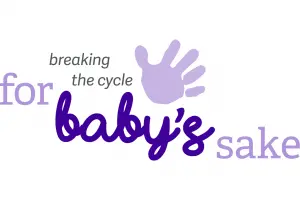iHV Executive Director, Dr Cheryll Adams CBE, was delighted to chair today’s launch of For Baby’s Sake Trust’s animated film on successfully addressing Domestic Abuse.
This powerful new animated film from BAFTA award-winning director, Emma Lazenby, features the raw testimony of a mother and father who are on the For Baby’s Sake programme, which works with the whole family to deal with the trauma and complex needs that are so often unaddressed for the parents, breaking the cycle and giving babies born into dysfunctional and abusive relationships a much more positive start in life.
Dr Adams said:
“This was one of the most moving and positive events I have recently attended, demonstrating as it did the courage of young parents to address the impact of generations of trauma for their benefit of the new infant they have created together. Health visitors will be interested to watch the film and delighted to know that there is a new programme which can make a difference in these circumstances. I strongly advise health visitors to watch the film when it is available”
The film was launched today at a virtual event, supported by a discussion on new approaches to tackling domestic violence, with speakers including Nicole Jacobs, Domestic Abuse Commissioner, and Frank Mullane, CEO of Advocacy After Fatal Domestic Abuse (AAFDA) and the newly appointed first ambassador for the For Baby’s Sake programme.
The For Baby’s Sake Trust (formerly the Stefanou Foundation) is calling on government, local authorities and charities to look at what new approaches can be taken to break the cycle of domestic abuse, such as the whole-family approach of the pioneering For Baby’s Sake programme which seeks to address the trauma that often sits at the heart of the issue.
As a significant signal of radical change, the Trust wants to see the recent amendment to the Domestic Abuse Bill currently in Parliament, which recognises children as victims in their own right, to be amended further so it is explicit in covering babies, including those still in the womb. Otherwise, those babies risk being overlooked, despite domestic abuse being particularly harmful to them and often starting in pregnancy.



